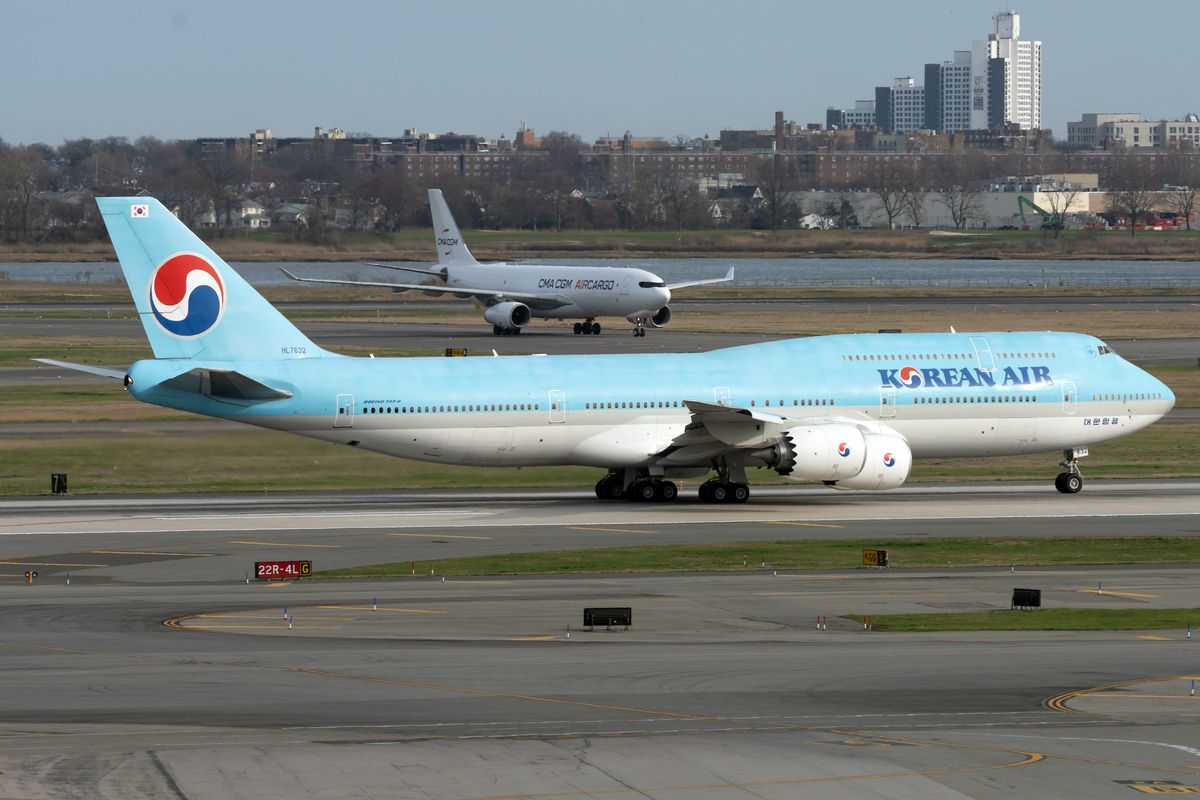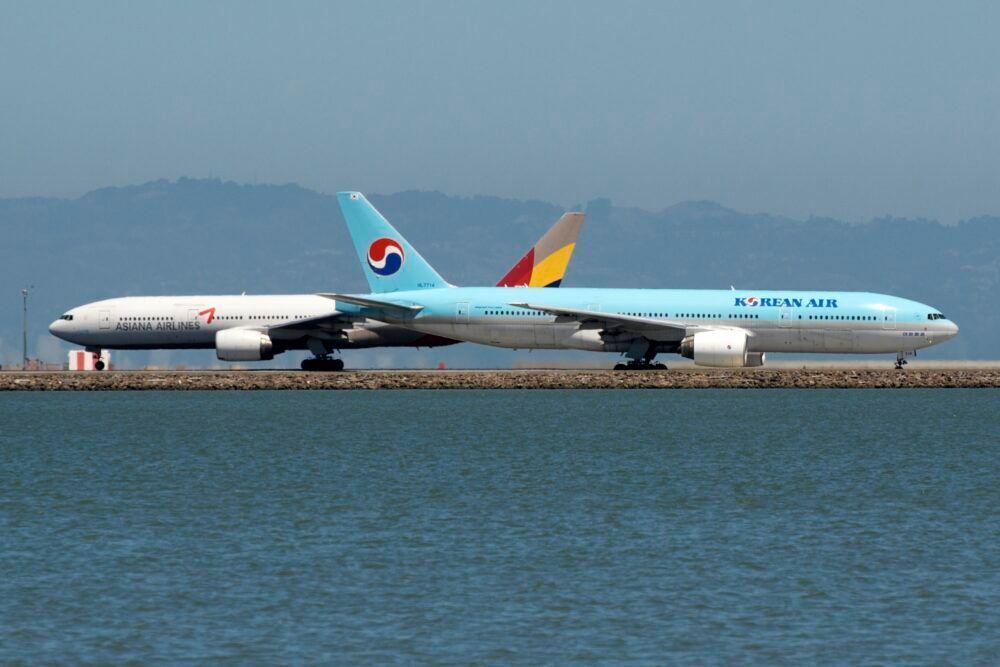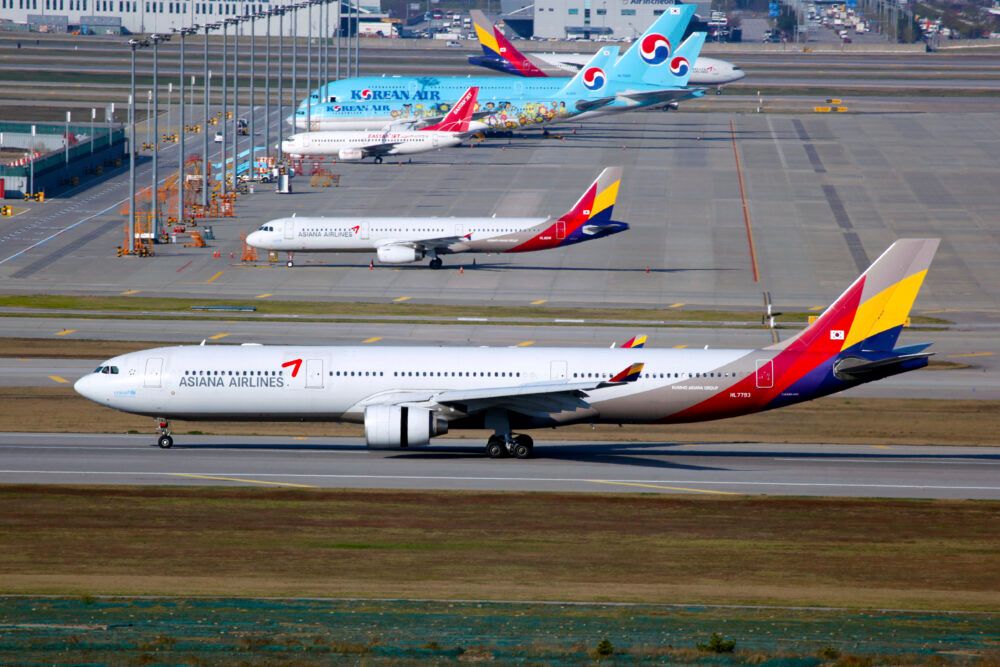Korean Air has finalized its post-merger plans with former rival Asiana Airlines. The plan got approval from the government-run Korean Development Bank, clearing the way for the merger to continue. However, there remain several more steps before the two carriers merger is complete.
Cleared
In a statement today, Korean Air announced that it has finalized post-merger integration (PMI) plans with Asiana Airlines. The decision comes after the plan passed the muster of the state-owned Korean Development Bank (KDB), which oversees the restructuring of major companies.
The PMI was submitted on March 17th, five months after Korean Air confirmed its acquisition of Asiana. After three months of scrutiny by the KDB, the plan has been approved and clears the way for the two airlines to streamline their operations.
Details about the PMI are currently under wraps. However, Korean has confirmed that it includes a merger of the two full-service airlines and their low-cost arms. This means Korean-owned Jin Air and Asiana-owned Air Busan and Air Seoul could all be combined into one mega-low-cost airline under the PMI.
The integration will see changes to the holding company structures to maintain accordance with the Fair Trade Act. Employee succession, union agreements, and reorganization of subsidiaries have all also been finalized by the airlines.
Stay informed: Sign up for our daily and weekly aviation news digests.
Long way to go
While Korean Air and Asiana finalize their post-merger plans, scrutiny from global regulators remains underway. The merger requires the approval of competition authorities of the US, European Union, China, and Japan before proceeding. Moreover, South Korea's own competition regulator is yet to greenlight the deal amid time for more studies.
Considering the merger marks the combination of the two biggest Korean airlines, questions have been raised around fare hikes and a possible monopoly in the region. According to Business Korea, the Korean Fair Trade Commission has extended a contract to study the economic impact of the merger, especially on price increases.
For instance, on routes to Los Angeles, New York, Chicago, Sydney, and more, the merged carrier would have a monopoly. Lawmakers are urging a review given the potential of fares to rise three-fold due to the merger. However, Korean Air insists that it will not make discretionary price increases regardless of the market status.
On track
The acceptance of the PMI means that the Korean-Asiana merger remains on track to be completed by 2024. While the purchase itself will occur next year (assuming regulatory approval), the full integration will take a further two years.
Indeed, the idea of a joint Korean Air and Asiana would have been shocking before the pandemic. However, given the tumultuous change over the last year, we could have a new mega-airline in Asia in the coming years.
What do you think about the merger of Korean Air and Asiana? Let us know in the comments!



